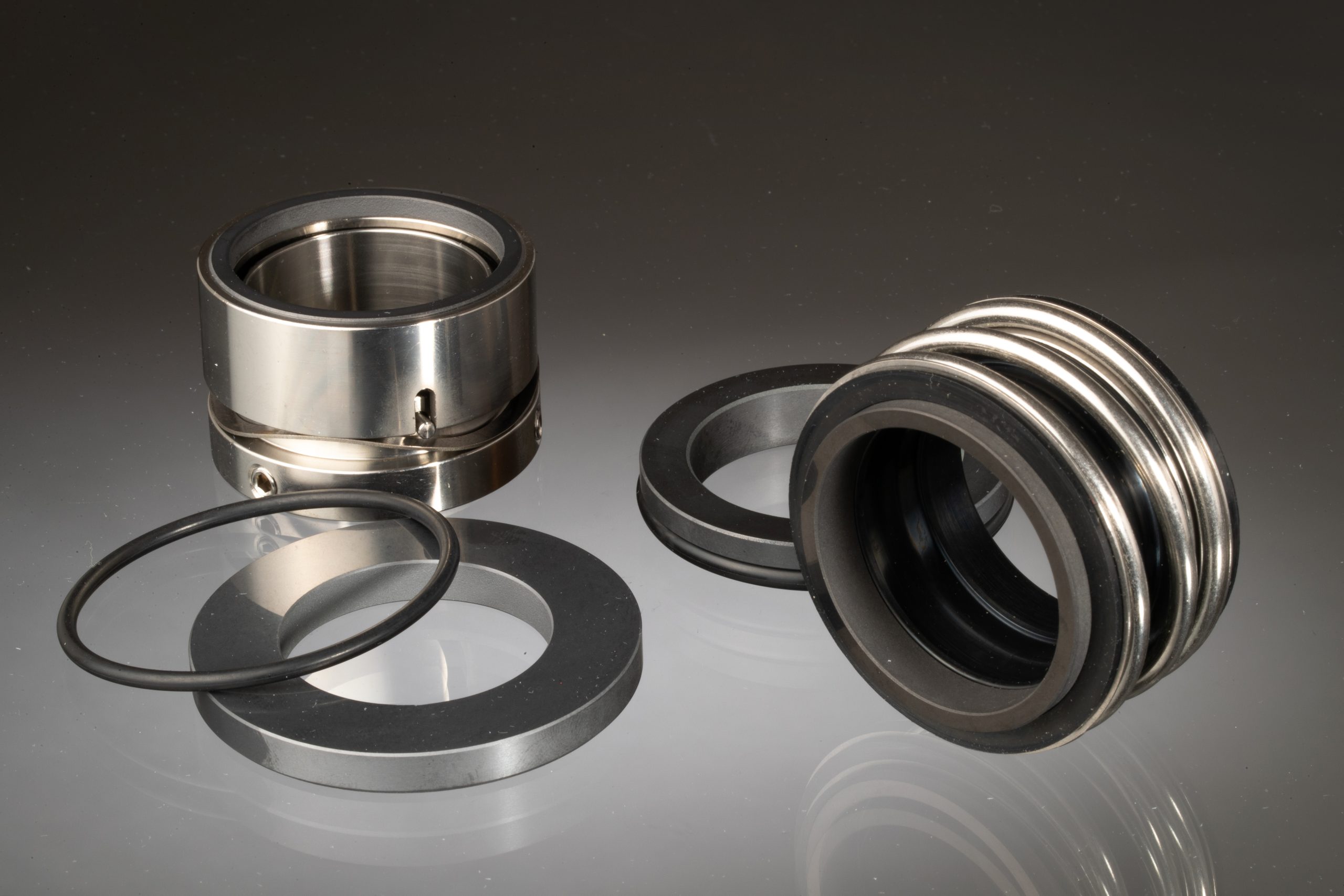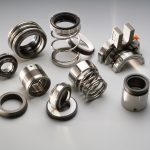In industrial applications, sealing systems are essential to prevent leakage of fluids and gases from pumps, compressors, and other equipment. Two common types of seals used in such applications are gland seals and mechanical seals. While both serve the same purpose, they differ in their design, construction, and performance. In this article, we will explore the differences between gland seals and mechanical seals and their respective advantages and disadvantages.
Body:
- Gland Seals:
Gland seals are the simplest type of sealing system and consist of a packing material, such as braided graphite or PTFE, compressed between a stationary gland and a rotating shaft. The gland provides compression to the packing material, creating a seal that prevents fluid or gas leakage. Gland seals are commonly used in low-pressure applications and are relatively inexpensive.
Advantages:
- Simple design and construction
- Low cost
- Easy to install and maintain
Disadvantages:
- Limited pressure and temperature capabilities
- Require regular adjustment and replacement of packing material
- Prone to leakage over time
- Mechanical Seals:
Mechanical seals are more complex than gland seals and consist of two main components: a stationary seal face and a rotating seal face. The seal faces are held together by a spring or other mechanism, creating a seal that prevents fluid or gas leakage. Mechanical seals are commonly used in high-pressure and high-temperature applications and are more expensive than gland seals.
Advantages:
- High pressure and temperature capabilities
- Low leakage rates
- Longer service life than gland seals
Disadvantages:
- More complex design and construction
- Higher cost
- Require skilled installation and maintenance
Conclusion:
In summary, gland seals and mechanical seals are two types of sealing systems used in industrial applications. Gland seals are simple and inexpensive but have limited pressure and temperature capabilities and require regular adjustment and replacement of packing material. Mechanical seals are more complex and expensive but can handle higher pressures and temperatures and have longer service lives. The choice between gland seals and mechanical seals depends on the specific application requirements and budget constraints.



Average Rating